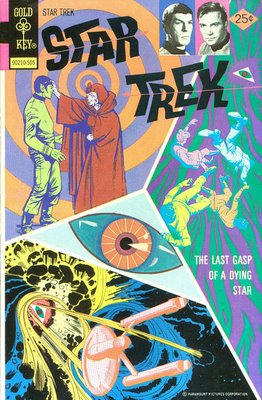Two years ago, a friend of mine was trying to persuade me to give Dave Matthews a listen. This was over an exceedingly long but pleasant dinner in Old Montreal, and although the spirits were generous, I was having a difficult time giving his proposal due consideration. I finally stopped him in mid-pitch and said, "If you want to know the truth, it's become physically impossible for me to listen to anyone of intelligence. I can't do it. The only stuff I'm capable of listening to anymore is mullet-head rock and roll with stoopid, stoopid lyrics. Led Zep, Acca Dacca ... that's pretty much it, really. I've become a lamentable rock & roll casualty."
My friend is a lovable mutt, so he came right out and said the magic words: "You know what your problem is?" (Do tell.) "Your problem is, when you were a horny adolescent you listened to Daniel Amos. And they ruined you. They ruined you for music."
He and I grew up in the same environment -- an Evangelical church with a Youth Group and a Youth Minister. His words (and the whisky) got me grinning, and he stayed on the offensive. "I had friends who listened to Daniel Amos. They wanted me to listen to Daniel Amos. They all seemed smarter than me, and Daniel Amos seemed smarter than them. And I tried to listen to Daniel Amos, but I just couldn't do it. You, though -- you didn't just listen to Daniel Amos, you liked it."
Guilty as charged. Daniel Amos hooked me because the band's leader, Terry Taylor, wrote lyrics that ought to have been heavily annotated. Hell, the band's name should have been annotated (two of Taylor's favourite biblical prophets). So DA fed my zeal with an ideal product: rather than pore over all the (dubiously) Satanic references that "secular" rock bands garnished their lyrics and album covers with, I pored over all the biblical, Christian and literary references that Taylor very consciously chose. Taylor started small, with Ron "Rich Christians In An Age Of Hunger" Sider, but quickly moved on to T.S. Eliot, Czeslaw Milosz and Frederick Buechner (the latter clearly becoming a big, big favourite of his).
I don't want to get hung up on DA, though, because the truth is their music never caused me much embarrassment. The milieu I discovered them in, however, is quite the opposite. And this is the most shameful secret I must admit to: in my earnest youth I devoted significant energy, passion and money to the burgeoning field of Christian Rock.
Actually, in the 80s, it was a rare Evangelical who could muster the chops, nevermind the attitude, for genuine rock and roll: the industry chose to dub itself "Contemporary Christian Music", and the product was about as much fun to listen to as the moniker suggests. I was intent on doing the right thing by my Saviour, though, so I spent unconscionable sums of money (CCM records were typically twice the cost of better-sounding "secular" records) on this fledgling genre. Which is to say I blew a lot of dough on, and listened to, an awful lot of crap.
I'll leave the list of suspects and their supposed crimes for another time. Again, occasionally hearing them played doesn't grate on my ears, because I'm still rather fond of the guy I was at the time. The acts I followed were (I believed) mirror images of who I was: a sincere pup intent on doing the right thing, who didn't want to hurt other people or inflict much damage on myself. You end up doing both, of course -- and you always hurt to the ones you love. The music you listen to can't change any of that. But thanks to DA, I grew increasingly impatient with any "Christian" product that didn't employ at least a little intelligence. Consequently, it wasn't long before I ditched CCM altogether.
There was one defining moment in my tender evolution of consciousness that came courtesy of one particular band and one particular album: Soldiers Under Command by Stryper. Disillusionment had already set in and simmered at a low boil when I brought this album home and lowered the stylus. When I heard the first few cuts off the album, I thought, "I'm giving up Van Halen, AC/DC and Judas Priest for this?! Who am I kidding?"
The end of an era; the beginning of a great adventure!

Hall of Shame Song #2.
Tags: Christian Rock, Daniel Amos, Stryper






















